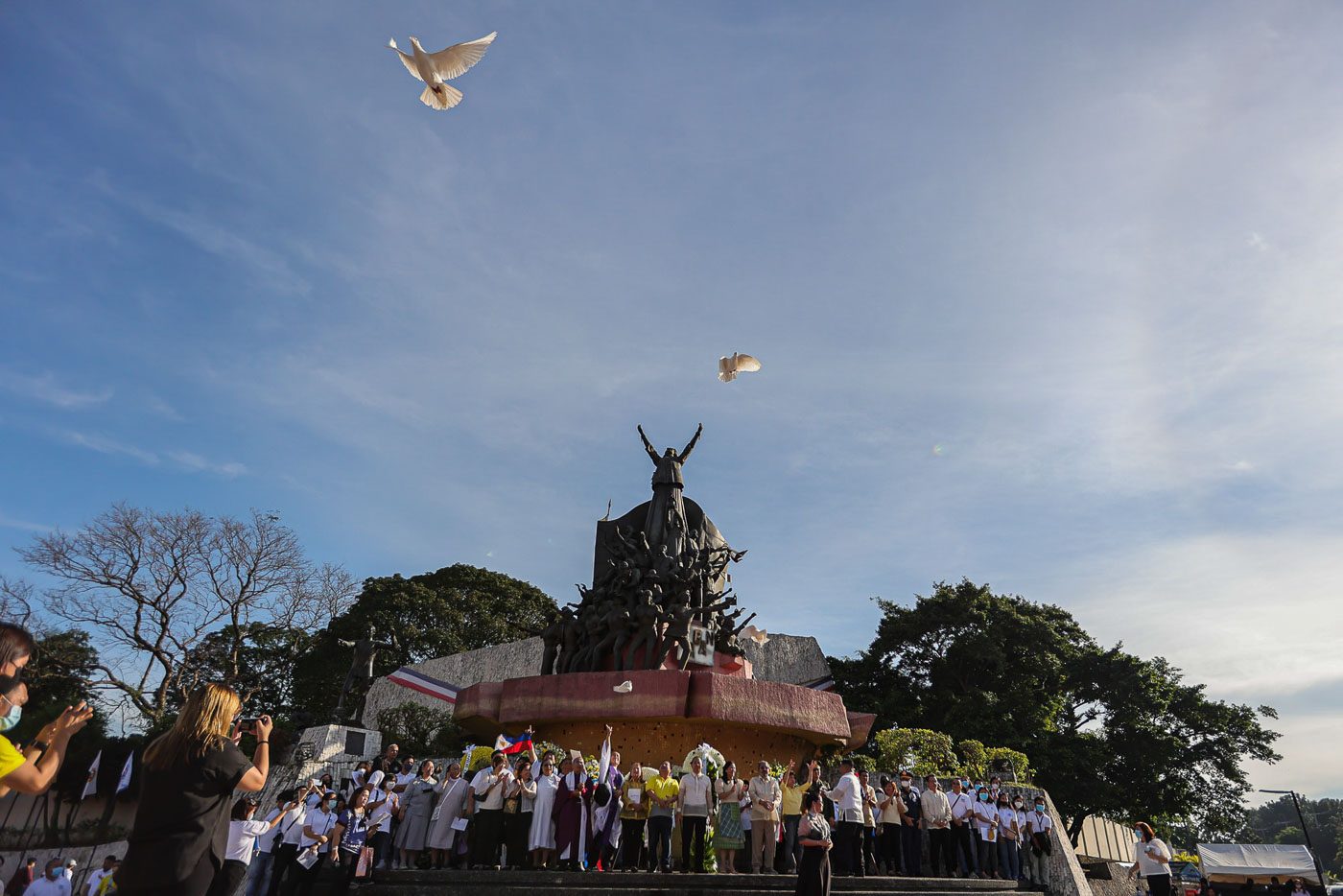SUMMARY
This is AI generated summarization, which may have errors. For context, always refer to the full article.

Malacañang Palace tries to minimize – in vain, it seems – its decision to exclude February 25, the anniversary of the People Power Revolution, from the list of special non-working days in 2024.
The revolution is familiar to President Ferdinand Marcos Jr. – it was what removed his father from Malacañang after over two decades in power, including several years under Martial Law. It was the revolution that forced himself and his family to flee to Hawaii for a short period in exile.
So when the Palace released Proclamation No. 368, the absence of February 25 as a special non-working day was glaring. Malacañang typically releases by the last quarter of the prior year the list of special non-working days and regular holidays for the coming calendar year.

In 2024, only eight dates have been declared special non-working days thus far:
- February 10 – Chinese New Year
- March 30 – Black Saturday
- August 21 – Ninoy Aquino Day (mandated by Republic Act Number 2956)
- November 1 – All Saints’ Day
- November 2 – All Souls’ Day
- December 8 – Feast of the Immaculate Conception of Mary (mandated by Republic Act Number 10966)
- December 31 – Last Day of the Year
- December 24 – Christmas Eve
In a statement released after the proclamation was made public, the Office of the President reasoned out that there would be “minimal socio-economic impact in declaring this day as a special non-working holiday since it coincides with the rest day for most workers and laborers.”
February 25, 2024, is a Sunday, or a day many workers have no work.
“The Office of the President maintains respect for the commemoration of the EDSA People Power Revolution. However, it was not included in the list of special non-working days for the year 2024 because February 25 falls on a Sunday,” said Marcos’ office.
The first time Marcos declared the holidays and special non-working days of the year, for 2023, February 25 was included in the list as a special non-working day.
February 25 through the years
The celebration of the People Power Revolution on February 25 is not codified in law. It’s up to a president to declare it – through a proclamation – as a special non-working day.
Curiously, throughout the presidency of the late Benigno Aquino III, son of democracy icons Ninoy and Corazon Aquino, February 25 was only a special holiday for school from 2011 to 2015. Under the presidency of Gloria Macapagal-Arroyo, February 25 was typically a special non-working holiday.
It was only in 2016 that the late Aquino declared the anniversary of the revolution, which put his mother Corazon into power, a special non-working day.
The entire six years under Rodrigo Duterte, Marcos Jr.’s predecessor, February 25 was a special non-working holiday, including in 2018, when it fell on a Sunday.
This would not be the first time that the second Marcos president got into controversy over how he labeled February 25. In 2023, Marcos declared last-minute that February 24 would be a special non-working day instead of February 25 itself.
In February 2023, the Marcos administration justified the surprise move by citing “holiday economics.”
But it’s hard to ignore the elephant in the room, as much as Malacañang tries.
Several groups and individuals – including Project Gunita, a group of civil society organizations dedicated to document the horrors of the Marcos dictatorship – have expressed outrage over the second Marcos president’s latest move.
“Project Gunita condemns yet another state-sponsored attempt to whitewash the history of the brutal dictatorship of Ferdinand Marcos Sr. This year, the EDSA commemoration was marred with confusion when President Marcos, invoking the concept of holiday economics, transferred the holiday to Feb. 24. For next year, the regime chose to tread the path of EDSA holiday’s complete eradication,” they said in a statement on Friday, October 13.
The collective added: “We pose these questions to Malacañang: Is the President still afraid of ghosts of the past? Are we walking into an Orwellian future under the late dictator’s son, where memory is deemed insignificant, if not criminal? Will the holiday on Ninoy Aquino’s murder be stricken off the calendar next in 2025?”
Several sectors in Philippine society have been concerned about how the dictatorship would be remembered – or forgotten – ever since Marcos Jr.’s numbers surged in preference polls during the campaign in 2022.
President Marcos Jr. has said that his entry into politics was a matter of “survival” for the clan, after their exile. Neither the second President Marcos nor his relatives have apologized for the atrocities of their patriarch’s dictatorship. – Rappler.com
Add a comment
How does this make you feel?
![[Newspoint] A Freedom Week joke](https://www.rappler.com/tachyon/2024/06/20240614-Filipino-Week-joke-1.jpg?resize=257%2C257&crop_strategy=attention)



![[Bodymind] Forgiveness, Enrile, and Bongbong Marcos Jr.](https://www.rappler.com/tachyon/2024/03/forgiveness-enrile-bongbong-march-6-2024.jpg?resize=257%2C257&crop=411px%2C0px%2C1080px%2C1080px)




There are no comments yet. Add your comment to start the conversation.